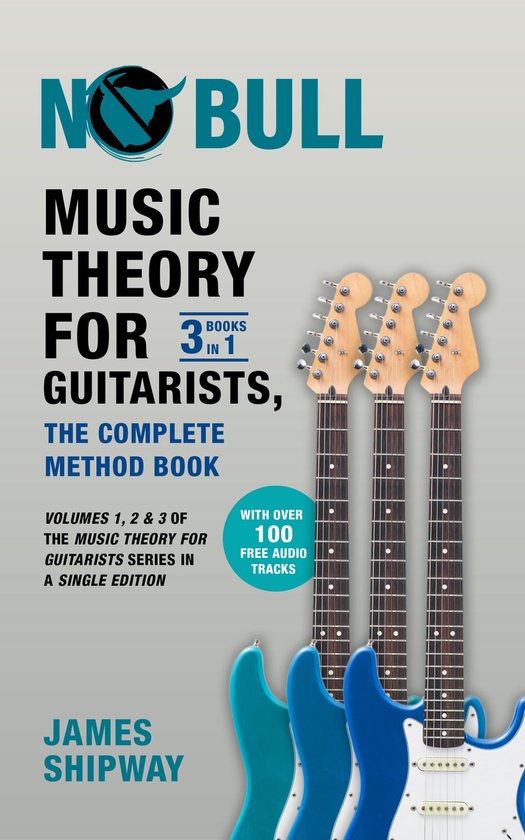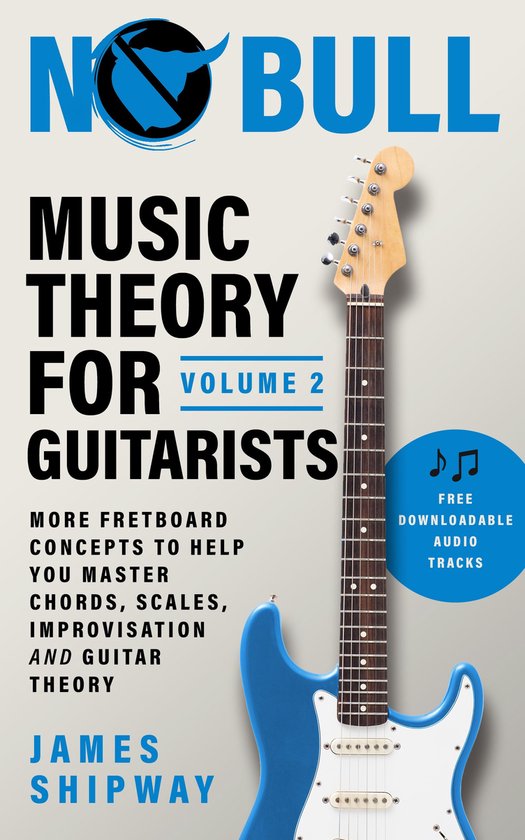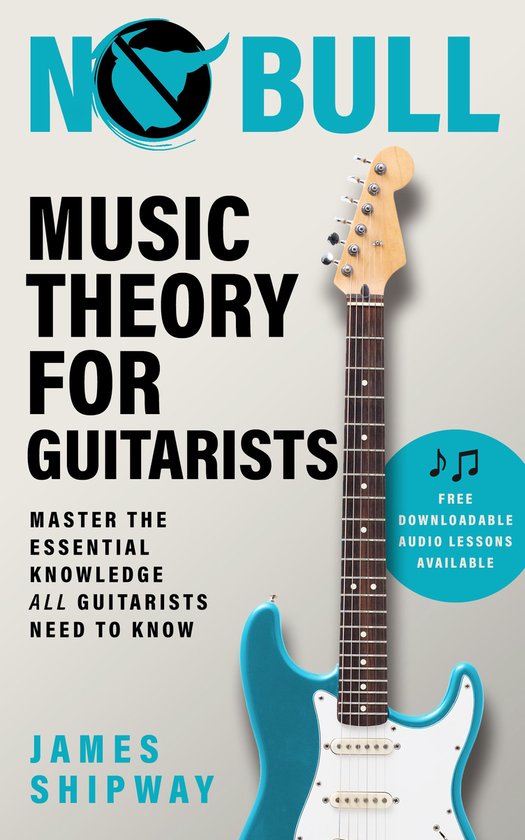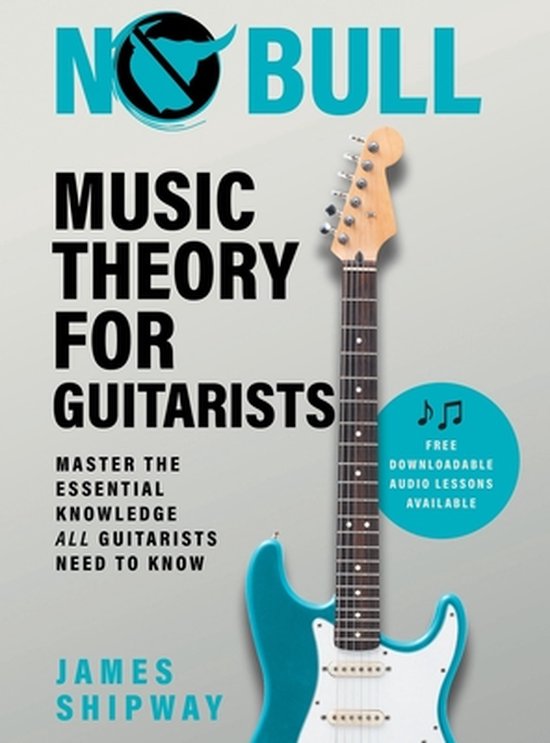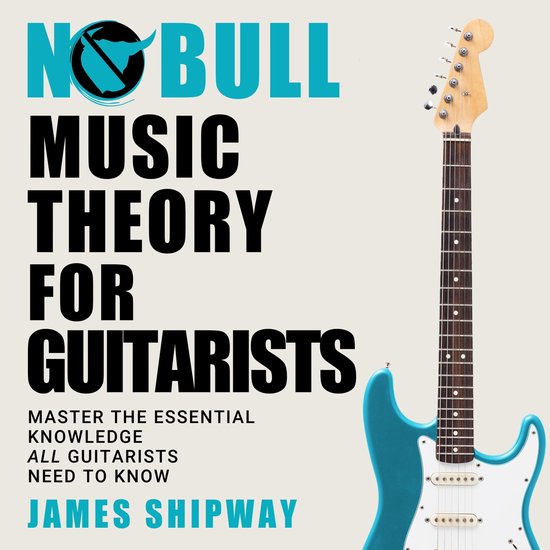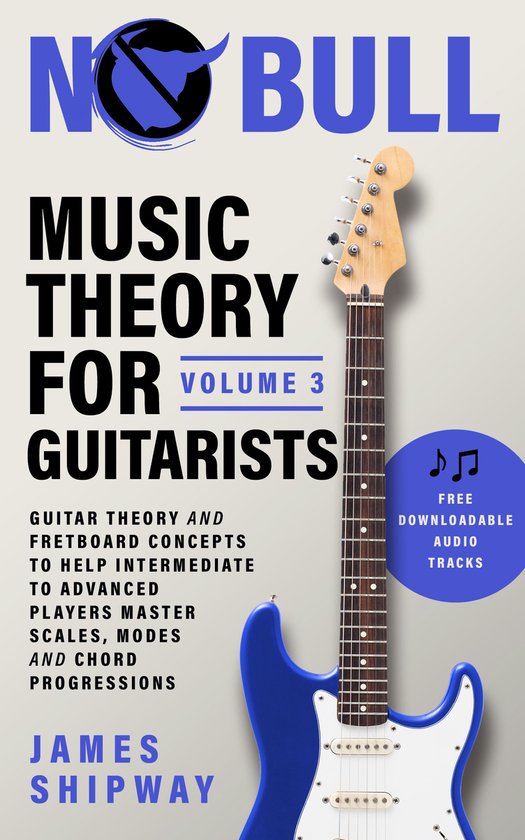
Music Theory For Guitarists 3 - Music Theory for Guitarists, Volume 3
In Volume 3 of the groundbreaking Music Theory for Guitarists series, you’ll discover even more essential guitar theory concepts to expand your music theory knowledge and give you an even greater understanding of the guitar fretboard. After using this book you’ll have a near ‘pro-level’ understanding of music theory and how it relates to the guitar, enabling you to become a more accomplished improviser, play more creative and better guitar solos, expand your skills as a singer-songwriter or composer, and become a more advanced all round musician.
This method book (with accompanying audio practice tracks and backing tracks) is perfect for any player from intermediate to advanced, who wants to better understand crucial guitar theory topics like improvising and composing with modes, using the CAGED system to unlock the fretboard, extended chords (9th 11th and 13th chords), the Harmonic minor scale and minor keys, changing key and modulation...plus much more. And with the same no-nonsense and straight talking approach seen in books 1&2 in this series, plus practical examples and audio demonstrations so you can hear the theory in action...you can use Music Theory for Guitarists, Volume 3 to easily understand advanced music theory topics in just a few hours.
In Music Theory for Guitarists, Volume 3 you’ll discover:
- How to use the CAGED system to organise and master finding your way around the guitar neck. Using this method you can eventually find any scale, chord or arpeggio anywhere on the fretboard (no more getting lost on the guitar neck!)
- Modes Part 3. Following the topic of modes as begun in Music Theory for Guitarists, Volume 2, we go deeper into the topic of modes, looking at how to use modes in your solos and compositions, ‘modal keys’, playing over chord changes with modes, and more
- The Harmonic Minor scale: what is it, how to play it, and how to use it in your guitar solos and compositions.
- Minor keys and the Harmonic minor scale. We’ll examine how the harmonic minor scale impacts minor key chord progressions, harmonic minor chord families, plus analyse examples of classic minor key chord sequences. Understand minor keys once and for all!
- Key changes and modulation. Discover how composers use key changes and modulation in their music to create more interesting and creative music. We’ll look at modulating to relative minor keys, modulating to parallel keys, using V chords to create smooth key changes and more. Sounds complicated, but this book makes it easy to learn the basics of this complex topic.
- Spice up bland chord progressions with ‘secondary dominant’ and ‘borrowed chords’. Learn where they come from and how to use them in your music. Essential knowledge for any player who wants to start getting into jazz style harmony and chord sequences (and avoid confusion further down the road!)
- Plus lessons on diminished chords and harmony, augmented chords and how to use them, introduction to ‘altered dominant chords’ (appendix) and more.
Music Theory for Guitarists, Volume 3 also comes with over 90 mins of audio content including play-along demonstrations of most of the examples from the book and backing tracks for you to practice and play to. So grab Music Theory for Guitarists Vol.3 now and continue your journey towards music theory and fretboard mastery on your guitar.
Perfect for:
- Any player who wants to take their knowledge of practical music theory to an intermediate/advanced level without it taking years of confusion and frustration
- Readers of No Bull Music Theory for Guitarists (book 1) and Music Theory for Guitarists, Volume 2 who want to continue their journey towards music theory mastery and greater freedom as a musician and instrumentalist
- Any guitar player who is confused by things like modes, key changes, extended chords, advanced chord progressions etc - and wants an easy to use and easy to follow method book to help (with audio examples so they can actually hear concepts at work!)
- Guitar players who want to start playing more complex music like jazz, Latin, fusion, jazz-rock etc. and want to understand what is happening and how to approach it
- Composers and singer-songwriters who want to learn and experiment with more colourful, creative, and interesting sounds in their music - and become more skilled and knowledgeable at their craft
- Guitarists who need to reach an advanced level of music theory knowledge quickly and easily for music college courses, exams, auditions etc.
| Auteur | | James Shipway |
| Taal | | Engels |
| Type | | E-book |
| Categorie | |
